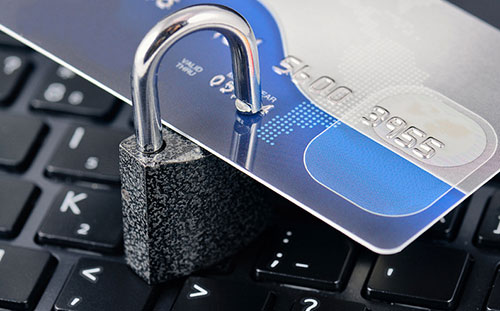Sharing a credit card with your partner is a very big deal. What was once all yours to spend is now also theirs. But unlike co-signing a lease or sharing a cell phone family plan, credit card debt is undefined. Before you and your significant other apply for a joint credit card, please check out the following tips for managing a shared credit card.
- Set a spending limit:

One of the best ways to manage a joint credit card is to set a spending limit individually and as a whole. Aside from your maximum balance, you and your partner need to agree on an amount you cannot exceed. As a rule of thumb, do not carry a balance that is more than 30% of your credit limit. A high balance will accrue more interest and may end up hurting your credit score. It’s best to choose a lower spending limit that is less than 30% of your credit limit.
- Be truthful:

Money is the No. 1 thing married couples argue about, so lying about your purchases or how much you spent on your joint credit card is probably not a smart move. It’s best to be truthful about your spending and share this information with your partner to not only avoid arguments but also give them a heads up that there is a change in the credit card balance. You’ll both be on the same page and won’t have to worry about any surprises on the bill.
- Know each other’s spending habits:

Before you and your partner get a credit card together it’s a good idea to talk about each other’s past and present spending habits. Even if your money personalities are starkly different — say you are a big spender and your partner is the frugal one — it is completely possible to maintain a healthy financial relationship. The most important thing you can do is have open communication and disclose information about your spending.
- Never, ever max out your credit:

Remember, a joint credit card account affects both parties. If one of you exceeds your maximum credit limit, then you both have to suffer the consequences. Maxing out your credit card can significantly damage your credit score and cause major problems for future credit and loan applications. Not to mention, the more money you charge up, the harder it is to repay. Set a maximum spending limit and keep your balance under 30% of your credit limit.
- Check the balance often:

It’s crucial for couples to keep a close eye on their credit balance and check it often. Don’t wait until after you’ve made a large purchase to check your credit balance. You need to check the balance and discuss the purchase with your partner beforehand. This way everyone is on the same page and is well aware of the balance.
- Decide who will pay the bill:

There are a couple of different options when it comes to paying the bill for a joint credit card account, but it may be simplest to designate one person to pay the bill each month. Whoever is responsible for paying the credit card bill needs to make timely payments and the other person can help by reminding them.
- Use your card minimally:

Credit cards are intended to be used minimally. They allow you to make large purchases that you can pay down over time and they serve as a reliable backup after debit cards and cash. If you and your partner want to have a successful joint credit card account and have little to no debt, then you need to keep your credit card active but only use it every once in a while.

 Rich Kiker is the Director of Online Learning at a K-12 school district in Pennsylvania, a blogger, an online professor, and a Google Certified Apps for Education Trainer. Other consulting roles include eLearning design, social learning, technology pathways development, and 1 to 1 computing. He can be reached at
Rich Kiker is the Director of Online Learning at a K-12 school district in Pennsylvania, a blogger, an online professor, and a Google Certified Apps for Education Trainer. Other consulting roles include eLearning design, social learning, technology pathways development, and 1 to 1 computing. He can be reached at 